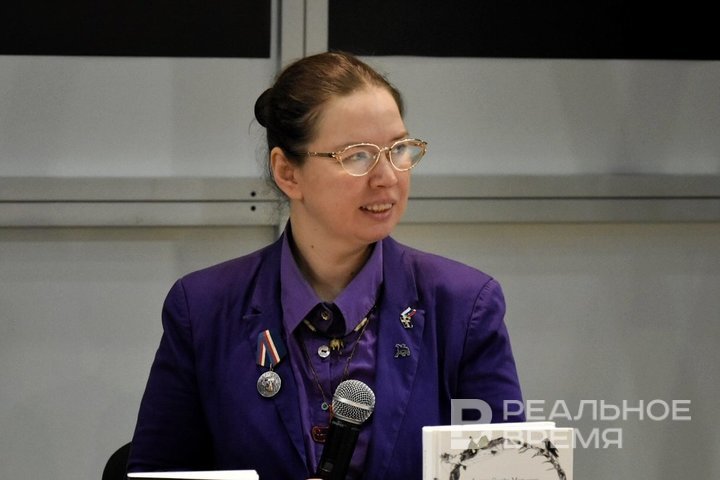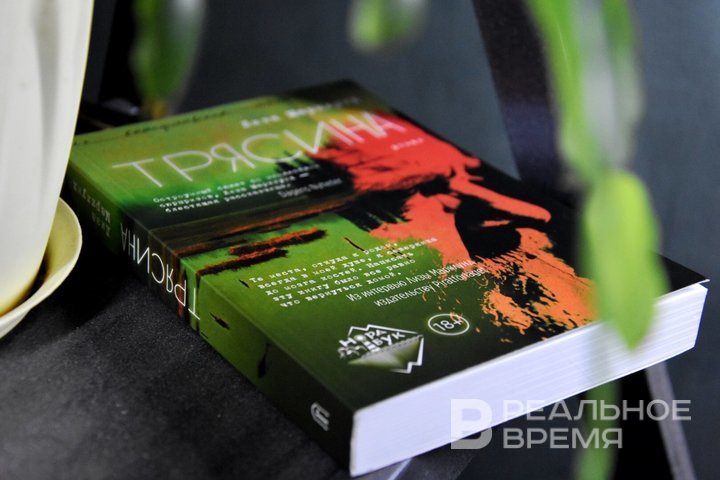Gloom in literature of the world’s happiest countries
Translators explained how detective stories from different Scandinavian countries differ

Scandinavian countries have been among the world’s top 10 happiest countries year after year. Especially according to the so-called Happiness Index. But the darkest detective stories appeared in the happiest countries of the world. Att White June festival in Arkhangelsk, book observer of Realnoe Vremya Ekaterina Petrova talked with translators of Scandinavian detective stories and found out why there was so much darkness in the works of northern authors and figured out the national difference between detective stories from different Scandinavian countries.
Easter is time for detective stories
A detective story is the most popular literary genre in Scandinavia, said the editor of NordBook Scandinavian literature of Gorodets publishing house. She also noted that in her homeland, these books are not considered entertainment like, for example, a detective story usually is in our country. And in Norway, there is even a tradition of reading detective stories during the Easter holidays. It began a hundred years ago. Duringt this time, Norwegians usually go to the mountains, sit in warm houses surrounded by nature and read books. And local publishing houses release about 50-60 new detective stories precisely by Easter.

But if the reader does not know that this is a Scandinavian detective story, he or she will guess this almost from the first pages. According to the description of nature, a strange hero and, of course, social problems that haunt the happiest countries in the world.
“Social problems are directly related to the Scandinavian detective genre. Because if you ask not only the question of who killed but also why, then this will lead to a huge pile of various problems. One of the favourite themes in the Scandinavian detective story, and especially in the Swedish one, is to give the floor to the criminal, so that there is a story of a difficult childhood unloving mother, bullying at school and the psychologist did not along with the story about the committed crime. And that’s how a person ended up in a crime life,” said translator from Swedish Yulia Kolesova.
Understatement and kitchen talks
The population of almost all Scandinavian countries is measured in millions. But no more than 350,000 people live in Iceland, according to data for 2023. And this feature gives rise to special social problems. It would seem how there could be problems in such a small society because everyone knows each other. Moreover, small settlements and villages are often the scene of action, not Reykjavik at all.
“Where can the mystery a good detective story is based on come from?” All residents have known each other since childhood and know each other’s character. But there is a place for secrecy because residents of small societies are very good at remaining silent. An Icelandic detective story is often based on this plot: detectives take on the investigation a recent crime and at the same time uncover a crime that was committed 30-50 years ago. Or they understand that behind a recent crime there is an old one, which was well hidden by the residents of this small town,” explained translator from Icelandic Olga Markelova.

While Icelanders know how to keep terrible secrets, in Norway, it is generally not accepted to talk about them. Although they discuss it in the kitchen.
“Jo Nesbø said in one of his interviews that in addition to entertaining readers detective writers have a big mission. They attract the attention of society and speak out loud about social problems,” noted translator from Norwegian Ekaterina Lavrinaitis.
Scandinavian writers often raise the topic of drug addiction and problems in medicine and health issues (Norway), human relationships with complicated communication when a person harbours anger that results in a crime instead of expressing his emotions (Iceland). Recently, detective story writers have been writing about bullying at school, after which a grown-up begins to take revenge on his offenders, and they are raising the topics of social isolation and neo-Nazism (Sweden).
Ambiguous protagonist and strong heroines
The main character investigating the crime is often a rather ambiguous character with a lot of problems. This could be alcoholism or any other addiction, cruelty, very difficult family relationships or illness. But despite all the difficulties of his or her personal life, this is almost always a highly intelligent person is able to solve the most complex crimes.
The Swedes replace the male investigator with a woman against the general trend of Scandinavian detective stories.
“The presence of a strong heroine is a characteristic feature of a Swedish detective story. And there can often be several heroines of this kind. This has already become the calling card of the Swedish detective story. And literary agents for Swedish authors complain that if the main character of the book is a man, then it is hard to sell the rights to publish the book outside Sweden because everyone is already accustomed to the fact that if there is a Swedish detective story, then there will definitely be a strong heroine. The most interesting thing is when there is a strong and smart heroine on the side of good, and a strong and smart villain is her antithesis,” said Yulia Kolesova.

But in Iceland, on the contrary, the main character is often completely ordinary, who does not have any special abilities. The hero often has family problems where the reader will be deeply immersed. In the Icelandic detective story, the main character’s ordinariness is compensated for by his investigative methods.
“The hero in Icelandic detective stories often receives important information from such strange sources as a chatter between neighbours who accidentally talk about an important detail necessary to solve a crime,” noted Olga Markelova.
Harsh northern nature
Don’t forget one more thing common to all Scandinavian detectives: the harsh northern nature. This is especially evident in films and TV series based on books of Scandinavian writers. Usually this is the nature of a specific area that, according to Yulia Kolesova, in a Swedish detective story is accompanied by an insight into history. This can be either the history of a specific location or a specific building (castle or lighthouse).
Until recently, detective stories used to take place in the capitals of the Scandinavian countries. But in the 21st century, writers began to look for new places and paid attention to the regions and cities where they came from. These small or remote areas, especially in the north, are little known, often for the Scandinavians themselves, which becomes a kind of national exoticism.
“A detective story teaches us empathy”
As a result, Scandinavian detective stories from different northern countries have their own characteristics, but what they have in common is that it is simply impossible to tear yourself away from the book. Yulia Kolesova believes that Scandinavians are good at working with feelings, and this is the main thing that holds the reader’s attention.
“These are conflicts, suffering, anxiety, resentment, searching for oneself. And the reader, along with the hero, follows his or her path, along this roller coaster of very strong feelings. Empathy for other people's feelings is the main feature of a detective story, which involves us and contributes to the development of empathy, making us better and more sensitive to the grief of others. We are no longer able to turn away, pass by and not give importance to someone’s misfortune. The detective teaches us empathy, and this is his most important merit,” summed up Yulia Kolesova.
Ekaterina Petrova is a book reviewer of Realnoe Vremya online newspaper, the author of Poppy Seed Muffins Telegram channel and founder of the first online subscription book club Makulatura.